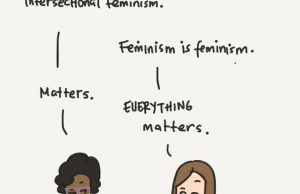THE NATIONAL CONFERENCE of BLACK LAWYERS (NCBL) CONDEMNS THE FBI’S CONTINUED ATTACKS ON ACTIVIST ASSATA SHAKUR
The Feminist Wire is committed to providing space for critical dialogue. We are reprinting NCBL’s statement in its entirety with permission from the authors with the express purpose of offering such space. The views expressed in what follows are those of NCBL.
The National Conference of Black Lawyers (NCBL) condemns the Federal Bureau of Investigation’s recent placement of activist Assata Shakur on its Most Wanted Terrorists list, and its increase of the reward for her capture to $2 million. These actions by the FBI should alarm everyone in the United States as they only serve to criminalize the right of people to disagree with governmental policies. These actions intimidate activists and recklessly expand the use and meaning of the word “terrorist.”
In the 1960s Assata Shakur was active in several human rights causes, such as the Black Liberation Movement, the struggle for student rights and activism to end the war in Vietnam. She joined the Black Panther Party, an organization that by the late 1960s was persecuted by the FBI’s Counterintelligence Program (COINTELPRO). COINTELPRO notoriously utilized covert and often illegal tactics in an attempt to discredit and destroy a wide range of groups, including the NAACP, groups advocating for the rights of Native Americans, groups associated with the women’s rights movement and groups that opposed the war in Vietnam. Like other members of the Black Panther Party, on more than one occasion Shakur was falsely charged with crimes, and in six different cases where she was indicted she was either acquitted or the charges were dismissed.
On May 2, 1973, Shakur was a passenger in a vehicle that was stopped on the New Jersey turnpike by state troopers for an alleged “faulty tail light.” That vehicle stop ended in one of Shakur’s companions being killed and a trooper being killed. Shakur, whose hands were in the air per the police’s instructions, was shot twice. Sundiata Acoli, the third person in Shakur’s car, was also shot. Another state trooper present admitted to shooting Shakur’s companion, yet Shakur and Acoli were charged for his death under the felony murder law. Shakur and Acoli were also both charged for the trooper’s death, though both were unarmed and the evidence indicated that someone else shot the trooper. Shakur was found guilty by an all-white jury and sentenced to life imprisonment plus 33 years. Shakur’s treatment as a prisoner –which included being confined to a men’s prison and being subjected to anal and vaginal searches—led to her being declared a political prisoner by the United Nations and other organizations and individuals. On November 2, 1979, with outside assistance, Shakur escaped from prison. In 1984 she fled to Cuba, where she was granted political asylum.
Why, when Shakur has lived in Cuba for nearly three decades, has the FBI elevated the importance of her capture by placing her on its Most Wanted Terrorists list? Why, since 2005, has the FBI labeled Assata Shakur a terrorist?
These actions by the FBI are a continuation of the government’s efforts to intimidate activists and stifle political dissent. In 2005, utilizing the definition of “domestic terrorist” under the PATRIOT Act, the FBI was able to designate Shakur a terrorist. The criminalization of dissent is a standard tactic of State repression.
Labeling Shakur as a terrorist and placing her on the FBI’s Most Wanted Terrorists list not only further criminalizes Shakur, it creates political and emotional circumstances on which the government could rely for justification or excuse in the event of her assassination.
The FBI’s actions can also be interpreted as maneuvering by the Obama Administration to keep Cuba on the list of countries supporting terrorism. This also sends a message to the leftist governments in Latin America that are friendly with Cuba.
In addition, very importantly, this recent action by the U.S. government specifically sends a message to Black people in America that if they oppose systemic oppression and police violence they will be labeled criminals and hunted down. Further, it attempts to revise history by claiming that the brave people that fought for the rights of Black people in the 1960s and 1970s are not heroes, but vicious criminals. It attempts to absolve the United States government of its sins of the past, as it ignores its sins of the present.
The NCBL demands that the government remove Assata Shakur from any terrorist list, and cease all pursuit of her. Further, the U.S. government must finally acknowledge the role that it played in criminalizing people such as Assata Shakur who fought for Black liberation in the 1960s and 1970s, and free all political prisoners.
(Source)




0 comments